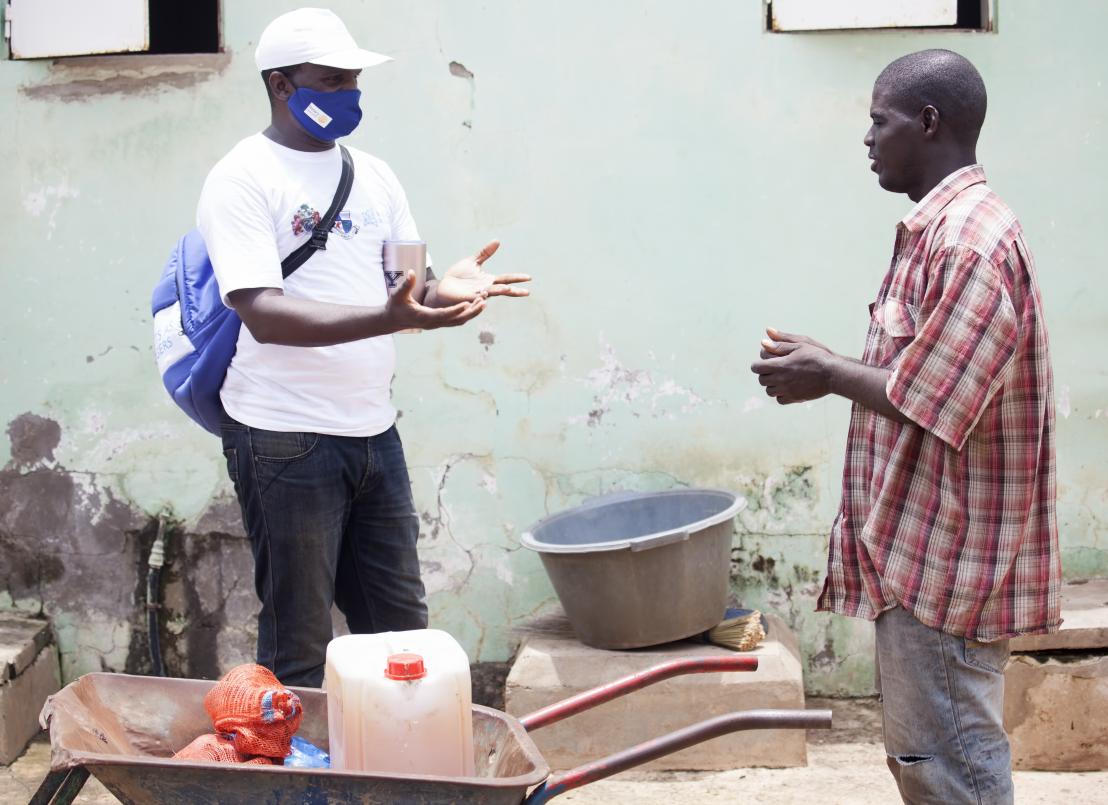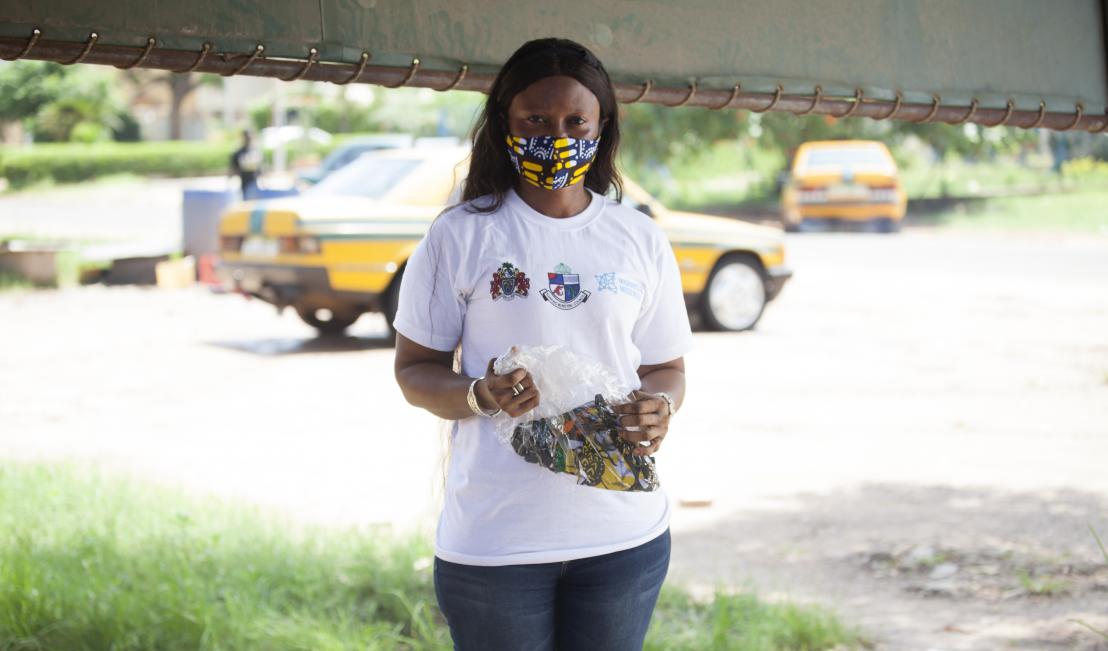Door-to-Door Gambian Migrant Returnees Debunk Pandemic Untruths
The Gambia
Story
Three years ago, Saikou Tunkara survived a harrowing journey across the Sahara Desert. He is now facing a large and very different threat — COVID-19.
“I want to help my country,” says Tunkara, who returned to The Gambia from Libya in 2017. “I want to help people know how they can protect themselves against the virus.”
The Gambia had fewer than 50 confirmed cases between March and June, before escalating to 2,000 reported cases in mid-August. The majority are centered around the country’s urban areas, the Kanifing Municipality specifically, which is the most populous area of the country.
Unfounded rumours and misinformation about the virus are rife, posing a real risk to people duped by false information to seek out bogus treatments. Tunkara decided to take action. He joined a team of 30 volunteers previously trained to deliver accurate information to communities in crisis situations who were called upon by the Kanifing Municipal Council to lead a door-to-door awareness raising campaign in August as the numbers of infected were increasing rapidly.
They went house-to-house providing people with information about preventive measures to protect themselves against the virus, distributing 1,500 face masks and putting up 3,000 public information posters along the way.
 The team of returnees and youth engaged over 7,300 community members, including influential female leaders.
The team of returnees and youth engaged over 7,300 community members, including influential female leaders.
The volunteers promoted hygiene practices, physical distancing and mask-wearing, especially important for people who were not convinced about the severity of the disease. They distributed information in markets and other public places, informing stallholders and shoppers about measures to guard against transmission of the virus.
For the returnees, who often face stigma in their communities and can struggle to re-establish their lives, the campaign was a unique platform for people with shared experiences to come together with other members of the community. Participants reported a strong sense of teamwork and community action to protect people against COVID-19.
Tunkara’s motivation to join the campaign stemmed from a genuine desire to protect his fellow Gambians from two common enemies — the virus itself and the false information about it.
“We had healthy discussions, which gave community members the opportunity to ask questions or clarify any doubts,” he said. “The spread of false news and misinformation does not help the situation, so we focused on understanding communities’ perceptions of the virus and countering misleading information,” he said.
 Prior to leaving The Gambia, Ebrima was a Red Cross volunteer involved in community engagement campaigns during the Ebola outbreak in neighboring countries.
Prior to leaving The Gambia, Ebrima was a Red Cross volunteer involved in community engagement campaigns during the Ebola outbreak in neighboring countries.
The job of tackling and managing unfounded beliefs about the virus is an uphill battle as people are not always receptive to accurate information according to Mam Jarra Mbye, another returnee-volunteer.
“Some people are still in denial or get carried away by anything they are told,” she said. “A good number of people subscribe to myths that are gaining momentum.”
Mbye believes that speaking with people directly will help change their perceptions, while the distribution of face masks and posters can serve as continuous reminders to adhere to preventive measures. She wants to take her advocacy work to the media and convey this information to a larger audience.
“Having discussions related to COVID-19 on television, radio and social media would really make a difference. It would keep people constantly thinking about the virus and the measures we should take to prevent its spread,” Mbye says.
 Mam Jarra hopes to expand her advocacy efforts through traditional and digital media. © IOM 2020 / Sheick Omar Sawaneh
Mam Jarra hopes to expand her advocacy efforts through traditional and digital media. © IOM 2020 / Sheick Omar Sawaneh
Both Mbye and Tunkara have seen their incomes shrink due to the impact of the pandemic. Tunkara has temporarily halted his waste collection business because he fears being exposed to the virus while restrictions on commercial activity have affected Mbye’s cosmetics business.
“At some point, we were entirely closed. Currently, we are allowed to open our shops for around five hours, but I no longer see my customers regularly,” she says.
Both have had to find ways to make ends meet during this difficult period.
“I’m able to safeguard my business through maintaining contact with my regular customers,” Mbye explains.
Tunkara has ventured into farming, cultivating watermelon and cashew nuts.
“This is how I can keep myself busy, making best use of the rainy season and hopefully gaining profit after harvest,” he says.
 The team of returnees and youth put up 3,000 educational posters around The Gambia’s largest urban area.
The team of returnees and youth put up 3,000 educational posters around The Gambia’s largest urban area.


